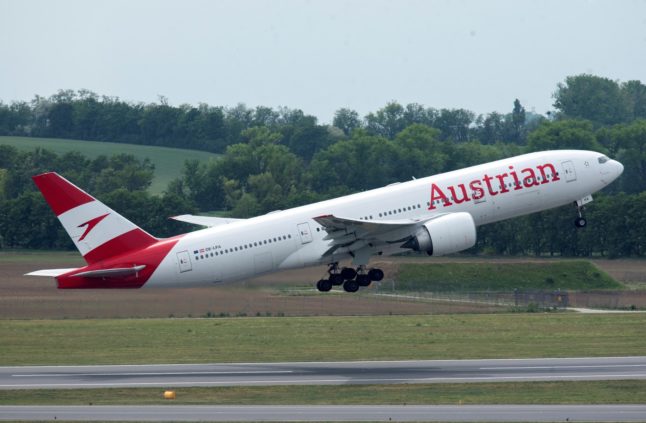Austrian Airlines (AUA) cabin crew workers have announced a 36-hour strike starting midnight on Wednesday night until midday on Friday, as The Local reported. Around 50,000 passengers will be affected, the company said.
Both the company and the trade union representatives have said they are still willing to negotiate to avoid planned strike action.
But, talks show no signs of reaching a deal, and there are no signs a compromise will be made in time to prevent the strike on Maundy Thursday and Good Friday.
So, AUA decided to “preemptively” cancel the flights that would be affected by the strike, said AUA spokesperson Sophie Matkovits.
“After a total of 17 rounds of negotiations, the vida union and the works council still do not want to discuss our offer of a pay increase of up to 18 percent for flight attendants and pilots, and even up to 28 percent for co-pilots. With this offer, the company has already moved beyond the economically feasible threshold”, the spokesperson said.
“No further talks have taken place since last Sunday, so the employee representatives have decided against finding a joint solution,” she added.
“We cannot leave our passengers in uncertainty until the last minute. That is why we have just had to decide to cancel around 400 flights on March 28th and until midday on March 29th. We are proactively informing the approximately 50,000 passengers affected. Passengers are also asked to check their flight status on the austrian.com website. “
AUA had also announced a “one-off” option of rebooking to flights operated by Lufthansa Group airlines (the company’s parent company) or cancelling their flight free of charge. “This can be done simply and easily via the profile under “My bookings”, via our Austrian App or the Austrian Chatbot”, AUA said on its website.
READ ALSO: What are your rights if your trip is delayed or cancelled in Austria?
Typically, either choice would incur fees with values depending on the fare type and itinerary.
Why is there no deal?
Details on the pay negotiations are scarce, with the company and union representatives often contradicting each other.
“We are ready to negotiate at any time,” Vida trade unionist Daniel Liebhart told Kurier newspaper on Monday.
“We have told AUA that they just have to come here”, he said.
READ ALSO: Everything that changes in Austria in April 2024
Both sides appear to be far from an agreement over pay rises.
For example, according to Kurier, the Vida union is demanding a pay rise starting at 16.94 percent for certain employees (such as senior flight attendants) and up to 49.48 percent for co-pilots. An industry expert consulted by the newspaper said that the average salary increase for foreign airlines was 9.52 percent.
Other demands by union members include more paid leave (42 calendar days from the sixth year of employment) and specifics regarding the hotels the crew stays, such as a requirement that they have a pool and fitness area and be located near the airport for waiting times of up to 12 hours otherwise in the city centre.



 Please whitelist us to continue reading.
Please whitelist us to continue reading.
Member comments